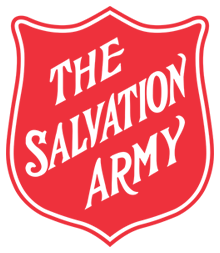Behavioural Health Services
Mental Health Services
Mental health impacts all areas of The Salvation Army’s social service delivery. Mental health concerns affect people from all walks of life regardless of social location. The Salvation Army addresses the challenges of mental illness as we strive to meet the needs of the whole person. In Canada, The Salvation Army operates mental health programs, and also responds to client mental health needs through integrated approaches in service delivery. Some existing programs include: transitional employment guided by the psychosocial rehabilitation model; supportive work training; adult day programs; and suicide prevention services, such as a 24 hour crisis line. In addition, residential and community-based programs may have mental health workers available, or work with community partners to provide more intensive supports for clients with mental health concerns. Some programs work to address comorbidity of mental health concerns and addictions (concurrent disorders), or developmental disabilities (dual diagnosis).
Addictions Services
The Salvation Army offers support to vulnerable and marginalized people who suffer from addiction. We offer a range of services which include emergency detox, stabilization programs and alcohol and drug awareness programs.
Our services are designed to meet the often complex, multi-faceted needs of those who suffer from a range of addiction problems. In order to do this, our centres across the country use a wide array of supportive measures and seek to foster an environment to allow those suffering from substance abuse both the space and time to regain their health.
More than 500 people having successfully completed addictions and rehabilitations programs with The Salvation Army in the past year. This is combined with several thousand who seek help with addictions at centres across Canada every year.
Developmental Disability
The Salvation Army operates several programs for people with developmental disabilities. This includes residential facilities, respite, and day programs. Residential services exist for both supported independent living and shared group living. Through the range of programs we work with clients with Down syndrome, autism, dual diagnosis, and physical health challenges.
Programs are tailored to allow different kinds of participation. Personalized program plans are developed with clients to explore unique interests, likes and dislikes, and create goals. Examples of goals include skill development in typing, basic finances, or handling confrontation. The provision of services is intended to meet the needs of the whole person including physical, emotional, social, and spiritual. For this reason programs include several different leisure and social opportunities, as well as spiritual care.






